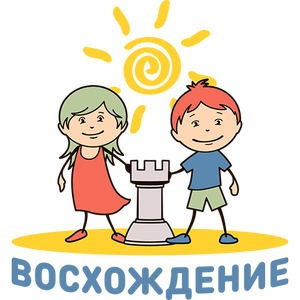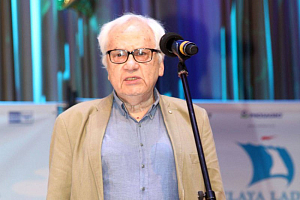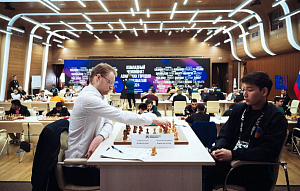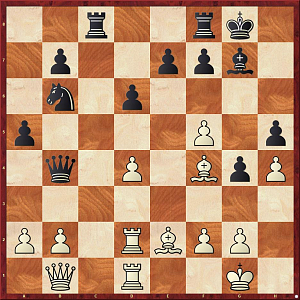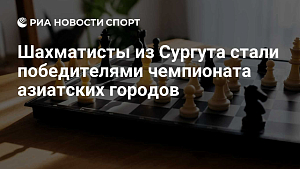2 December 2015
Alexandra Kosteniuk: I feel like a national team guardsman
12th World Champion answered the questions of Eteri Kublashvili.
– Alexandra, I would like to congratulate you and the entire team with the European Championship gold medals! This time it seemed as if you guys were playing even more confident than usual. Is it so?
– Thank you. It is difficult to assess to what degree our performance was more confident than usual because each tournament has its specifics and despite the seeming effortlessness there are no easy victories. There were definitely difficult moments, but we somehow succeeded in turning them around to our advantage.
Our match against Armenia had a particularly rough start. However strange it may seem, out match against the Italian team also was very challenging despite the substantial gap in rating, as Valentina was losing all the way (and she did lose in the end), I was also lost at some point (although I ended up winning), Kateryna had an equal position, and only Aleksandra was winning.
However, after the match against Georgia we started to breathe more freely, although, again, every match was not devoid of some sort of its own share of concerns.
The Russia-Georgia match finished in a 3.5-0.5 score in Russians' favor
– The only draw that you made was against Ukraine. Tell us how the match was unfolding.
– It went off not at all so bad as we stood to lose at no moment. Both Kateryna and Aleksandra emerged with comfortable positions out of the opening and they went on to win their games as White. Among second players only I appear to have had some chances of escaping with a draw. I had a decent position at first, but then missed an unpleasant maneuver, and the initiative was taken over by White. In time trouble I regained chances of tipping the scale in my favor, but failed to utilize them. With a 2-2 score the match turned out to be a pretty balanced one with two wins with White and two losses with Black.
As we had a comfortable lead by that point, this draw did not spoil anything. If anything, it unblocked the road towards the first place, as we made a draw with the last main contender, and the remainder of the tournament was well in our hands.
– Your team is known to be very well knit-together since the girls and their coaches go along superbly with each other. This time the team featured a "rookie" – Anastasia Bodnaruk. How has she fitted into the team?
– This championship was no exception to the rule. All girls are very pleasant to be around with, each taking very professional attitude towards the tournaments and training sessions. We are all different; in terms of chess each features her own strengths and weaknesses and peculiarities of style. This, I believe, creates a well-knit team because each contributes something of her own.
Unfortunately for Anastasia, she finished the tournament with not so many games under her belt, but she was keeping her chin up nonetheless. In the last key match Anastasia scored a very convincing victory as Black. I hope she keeps pleasant recollections of her debut for the national team. I'm sure that for Anastasia and for all of us both the tournament and the training session were of a great benefit.
I want to express my gratitude to coaches and emphasize once again the very special atmosphere that is probably a hallmark of our team. It is especially important to enjoy good relationships with other team members when you spend almost a whole month together.

At the training session with the head coach Sergei Rublevsky
– Was it your first time in Iceland? Did you like the organization and the venue?
– Yes, I have never been to Iceland before. The organization was okay; I have participated in a lot of events and I have something to compare with. Neither opening nor closing ceremonies were glitzy and came off rather modestly, but there used to be everything you need to enjoy a comfortable game. I cannot single out any striking features in terms of the event’s organization, but the hosts did their job quite reasonably. The tournament went along smoothly; I have never heard any complaints either about the hotel, the meals or the tournament hall from anyone. In principle, everything was well organized to have a decent play.
I could only express some regrets about not having been able to see much in the way of sightseeing. However, we arrived a day earlier and it afforded us additional time to relax following the end of a long arduous trip. Besides, I did not play in the round one, which might have helped me too since the autumn proved to be extremely tense as I had been playing nonstop in October. And then, as was shown later by the course of the tournament, no opportunities to take rest presented themselves for me any longer and I went on to play each of the remaining eight games.
We used the day off to go see the geysers, so that we did manage to see something at least. Although I would like to get more sightseeing, some impression were obtained nevertheless. It appears, though, that the beauties of this northern country are best enjoyed in summer, or we ought to have dressed more warmly (laughing).

Near the geyser
– Let’s talk a little about the training session. The Match TV channel showed a video where out of all other girls only you were playing football …
– No, I'm not the only one who plays football in the team. In fact, Kateryna Lagno and Anastasia Bodnaruk played in the beginning also, but then for various reasons it was only me out there on the field, which was rather due to the request of the coaches.
– Do you enjoy playing football?
– I love the game, but play it rarely. The training session, in fact, is almost the only opportunity to play football, because it takes two teams, a field, and a lot of other things for that matter. If the opportunity presents itself, I am happy to play. I was delighted to be able to kick the ball near the Krugloye lake on a couple of occasions and got a charge of positive emotions as a result of that!
– How much time do you devote to sport activities in comparison to what is devoted to chess on a routine basis?
– There is not much in the way of routine. I have a special schedule when playing in the tournaments, while in between the competitions I try to practice the sport activities regularly such as jogging and playing tennis.
– Do you practice sport every day?
– When I'm home, where I have all conditions for that, then I do it daily. Still, when I return home I try to spend as much time as possible with my daughter. So it turns out that I spend an hour or two on sports, four to five hours on chess, while the rest of my time I devote to my daughter. And, in general, there remains very little time for anything other than that.
– After winning the European Team Championship you took part in the TV program "Evening Urgant" together with Peter Svidler and Ian Nepomniachtchi. How did it go? Did you like it?
– It went very well and was a lot of fun. It's always a pleasure when the celebration of chess victories is not confined to the circle of the chess world only, which is rather limited and closed, but rather goes beyond it. Talking about our chess world is worth it if we are willing to attract more people so that they follow and cheer for us. Such opportunities are very important for propagation of chess. I hope that our program will go on the air soon.

Ivan Urgant in the midst of grandmasters
– Have you ever wanted to try yourself in the role of a TV host?
– Believe it or not, but the idea of finishing my career comes to me with ever more increasing frequency nowadays, because I do not know how much longer I can still go on playing active chess. I'm happy to see that we have a new generation of younger girls growing up. In fact, I feel as if a team’s guardsman, because I have been playing for the team ever since 2002, and this is quite a decent time span.
Yes, I am pondering over various offers and options. Still, I do want chess to remain part of my life. I am sure that even when I stop performing on a professional level, chess will remain with me. I hope I can also distinguish myself beyond the chessboard.

The bronze medal winners of the 2003 European Team Championship (Plovdiv): Alisa Galliamova, Svetlana Matveeva and Alexandra Kosteniuk with their coach Yuri Yakovich
– How long, from your point of view, can a woman player be involved in an active playing career?
– Pia Cramling, for example, is the only player in the top 16 (rated above 2500) who has a very long and successful career. Other players are slightly over 20 or 30, and Cramling is the only one of her kind.
Therefore, one can go on playing for an indefinitely long time, but the question is how successful this performance is going to be. This is a deeply personal matter. As long as I produce good results, have eagerness, and stamina, above all, to work on chess, to withstand the rather lengthy tournament marathons, I'll keep playing. And then we'll see.
– Is chess just a hard work for you, or you finding pleasure in it?
– It is probably a little bit of everything. There are moments in chess which I love, for the sake of which I keep training, studying, and abandoning my family for substantial periods of time. Let's say, chess is my favorite work. Although there exist certain things that I am not particularly fond of doing, in the absence of hard work improving oneself comes difficult whatever field of activity one might go in for. This is why I have continued playing and taking pleasure from being in touch with chess and chess players until this very moment.
– Is it possible for a woman to earn her living by playing chess?
– Yes, I consider chess to be my job and I earn my living by playing chess.
– Please tell us about the Alexandra Kosteniuk Cup and about your school.
– This Cup is an annual tournament which has been held for many years in Kaliningrad Region with the support of the Regional Ministry of Sports. Next year we might organize it closer to the capital. I receive a lot of requests from parents who experience difficulties in getting across to Kaliningrad.
As for the school, this is a small private enterprise of my own. This project is kept on track by my mother, who is its heart and driving force. The school is attended by the preschool children from three to seven years of age. Studying chess with us is not like studying the sports subject, but rather a way of preparing children to school, a method of intellectual development. Naturally, the children learn the rules of chess and how to move the pieces, but the main goal is focused on their development and preparation for school.

Together with the participants of the Alexandra Kosteniuk Cup
– Another aspect of your activity was the work in the Women's FIDE Committee…
– …that stopped a few years ago. It was a volunteer job, and when, as often happens in such types of committees, there aroused some squabbles and struggle for power, I realized that this was not for me. I did this work only for the sake of promoting the women's chess, whereas fighting for something, for some kind of influence was not in my plans. So I have distanced myself from it.
However, I continue to be involved in the popularization of chess as much as it is possible. This is especially true for the children's chess. In fact, when talking about my projects, it should be born in mind that the majority of them are linked to the children's chess.
So, this year my "Chess copy-book for the smartest kids" came out, which took me many years to have finalized, and this work was far from being an easy one. I am very glad and proud that we succeeded in having it published after all. I think it is a good, colorful and an interesting book for the children.
– I would like to return once again to the women's chess. Recently in his interview to the Chess-news.ru Aronian said that the women's tournaments need to be canceled, and then women will start playing as good as men. What is your opinion?
– I am familiar with the interview (laughing). I have been pondering about it a lot and discussing it more than once. I understand what Levon has in mind and he is probably right in a sense that if we want to grow women into strong men grandmasters they might have to confine themselves to playing against men only. But then we are going to cancel chess as a trade for women, we should not fail to understand it. Unless the women's tournament are held, the women's chess is going to extinct, because only a few women players that will be able to earn their living by playing the game. However, I do not consider it necessary to go that far.
It depends on what we are striving at: if we aim at growing women grandmasters that play on equal terms with men, then he is right, if we want to develop the women's chess, then he is wrong. It's a question of priorities.

The most popular chess selfie of the year
– Has the situation in women’s chess changed much within the last 10-15 years?
– It goes without saying that the situation has improved and the current schedule features a great deal of women's tournaments. FIDE does quite a lot in this respect. Now, for instance, this tournament is barely over when we're already on the way to Rome for another event. The schedule is often so tightly packed with events that you have to give up on some competitions from time to time.
It is also good news that such strong opens as Qatar Masters or Tradewise Gibraltar Chess Festival offer good prizes for women, instead of 50 euros as is often the case. When I was in the FIDE committee I wanted to ban this practice because men’s and women’s prizes should be distributed proportionally.
And here in Qatar and Gibraltar the prizes for women are very decent, for which I express my gratitude to the organizers. Although we fight alongside men, we end up being ranked to a separate standing nonetheless.
The situation has thus changed for the better. It appears that there is always something to work on, to criticize upon, but I hope that this trend will continue and the number of tournaments will be on the increase.
– How important for you is the participation in the FIDE Grand Prix series? Is this cycle one of the major priorities in your yearly schedule?
– This tournament is not a priority for me. The Grand Prix has always been a hard time for me; I would always get off to a difficult and unpleasant start. I finished last on two occasions in 2011, and all of this has added itself to establishing quite negative associations with the event. This is a decent tournament with good prizes, but it’s like a severe penalty for me (laughing)!
The Grand Prix tournaments are far from being the major events of my calendar, and I rather consider them as an opportunity to compete against myself and step up to a new level.

– So, when you heard that you would participate in the new series, you were not thrilled about it, were you?
– No, I was not. I accepted the invitation because giving up on the Grand Prix would be a very strange decision from the professional point of view. If a chess player is still in the pursuit of something such as crown or rating, she is not entitled to waive such a great and solid tournament. But, nevertheless, had I not got into it, I would not have been too much frustrated after all.
– Today, November 26, Rome will host the final of the first online FIDE Women's World Championship in which you participate also. Please tell us about this event. How do feel about games played over internet?
– There used to be times when I played a lot of online chess on different internet servers such as ICC or Playchess.com. I used to be much involved with it. But then, with the birth of my daughter there was no longer enough time to relish Internet games, and I have practically quit playing online since what seems to be the year 2007.
This is of course not as much fun as playing a live person. But now, when I really long for chess battles, I still go online from time to time to play some games, and my participation in this championship is justified by the same reason. In June I had a break, a rather lengthy one by my standards, I was not playing anywhere, and my daughter had just started her vacations... At that moment I came to the conclusion that taking part in the online world championship was not a bad idea at all and that I could participate in the qualification tournaments. This project certainly requires some fine-tuning: I am very well aware that when playing online against a female chess player N, it might actually be a male chess player Y.
But I competed for the purpose of training; I passed the qualifying stage and then into the quarterfinals. It turned out that the semi-final was very well timed in between my other tournaments and flights, and I succeeded in reaching the final, which was initially planned to be carried out online either. It looks like they finally managed to find some sponsors, which is always good news, so that now the tournament venue will be in Rome. Eight participants have passed through the qualification screen, whereas two players, Dzagnidze and Gunina, received personal invitations. Thus, ten female players are to play each other in two rounds. As I see it, they will station us in some hall at the round table and we will be playing on own computers on FIDE Arena platform. The winner of the first such online tournament will be named champion.
I welcome this undertaking and consider it especially superb for women in particular because female chess players often cannot or do not want to pursue their careers due to inability of leaving their families for lengthy periods of time, whereas in this case one can participate without having to leave her home.
The only thing that must be considered further is the "safety" aspect such as playing with the webcam operating so as to be able to have a view of your opponent. I believe it to be a fair idea.
– Can friendship between women players exist at all? How many female friends do you have?
– I general I think that there shouldn’t be a lot of friends. However, a lot it depends on what we mean by the notion female friend. If this is a woman whom you can simply dial and chat, this one thing…
But I do not have many friends and, to be honest, do not aspire to increase their numbers because friendship for me means something fairly serious. A fiend for me is a person who you trust, while both of you can mutually rely on each other. You know that in a difficult life situation you can turn to this friend, and, by definition, there simply cannot exist a multitude of people like this.
However, all my friends are women chess players and I have no friends beyond the chess world.
At the European Team Championship closing ceremony together with Kateryna Lagno
– Your personal life situation has changed this year. Please tell us a little about it, if you do not mind.
– I could say that over the past year a lot has changed and the year has been teeming with various events. It was not only a myriad of chess tournaments that I have had, but also a plentiful of changes in my personal life that have happened along the way. So, I am really looking forward to the end of this year, to some kind of a break so as to catch my breath and better realize everything that has taken place and is going on still. A great deal changes quite quickly and often quite unexpectedly.
The champions
Pictures from Facebook and Twitter were taken by Alexandra Kosteniuk, Mark Glukhovsky, Vladimir Barsky, and Maria Emeljanova









